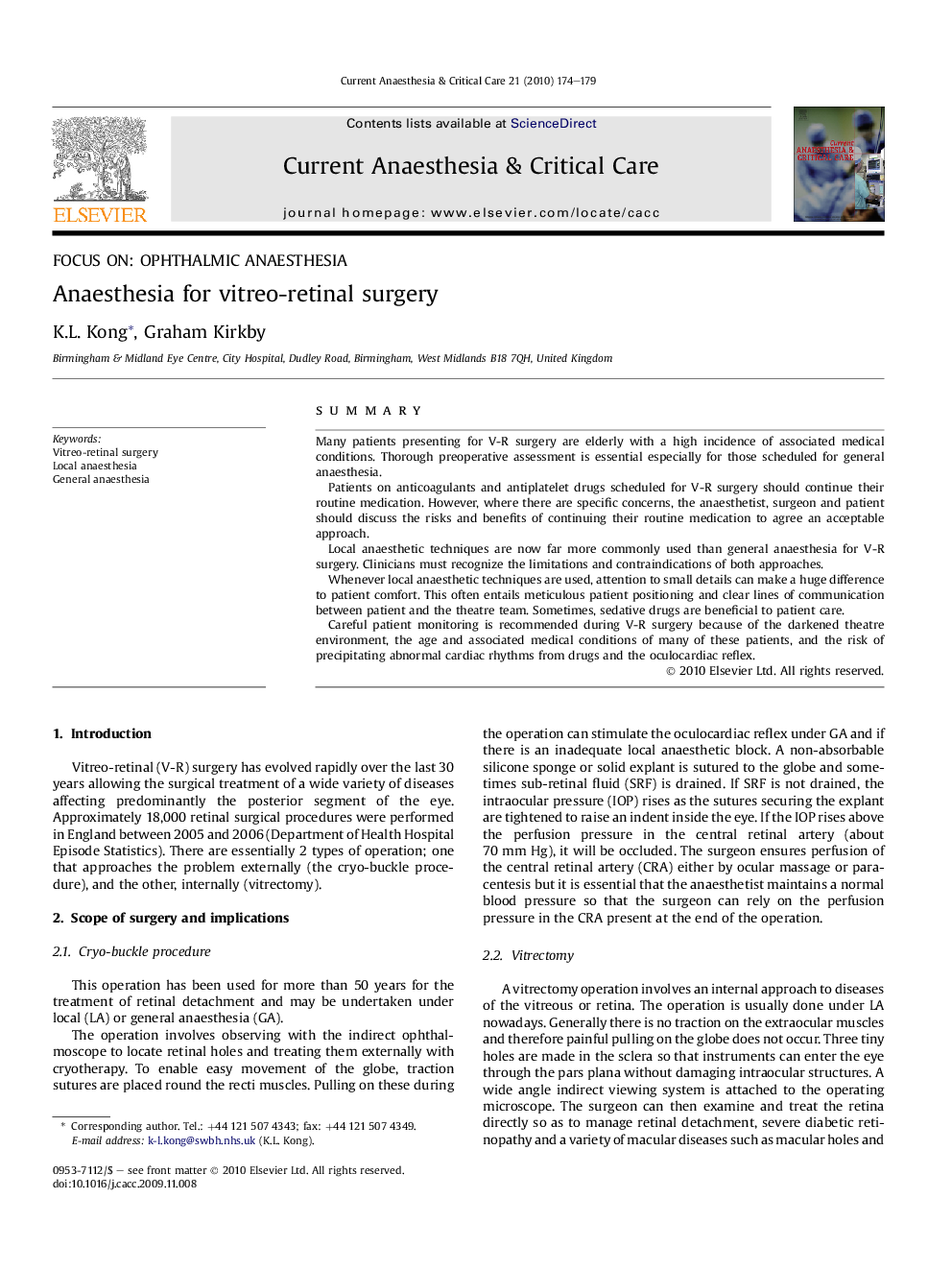| Article ID | Journal | Published Year | Pages | File Type |
|---|---|---|---|---|
| 2607981 | Current Anaesthesia & Critical Care | 2010 | 6 Pages |
SummaryMany patients presenting for V-R surgery are elderly with a high incidence of associated medical conditions. Thorough preoperative assessment is essential especially for those scheduled for general anaesthesia.Patients on anticoagulants and antiplatelet drugs scheduled for V-R surgery should continue their routine medication. However, where there are specific concerns, the anaesthetist, surgeon and patient should discuss the risks and benefits of continuing their routine medication to agree an acceptable approach.Local anaesthetic techniques are now far more commonly used than general anaesthesia for V-R surgery. Clinicians must recognize the limitations and contraindications of both approaches.Whenever local anaesthetic techniques are used, attention to small details can make a huge difference to patient comfort. This often entails meticulous patient positioning and clear lines of communication between patient and the theatre team. Sometimes, sedative drugs are beneficial to patient care.Careful patient monitoring is recommended during V-R surgery because of the darkened theatre environment, the age and associated medical conditions of many of these patients, and the risk of precipitating abnormal cardiac rhythms from drugs and the oculocardiac reflex.
